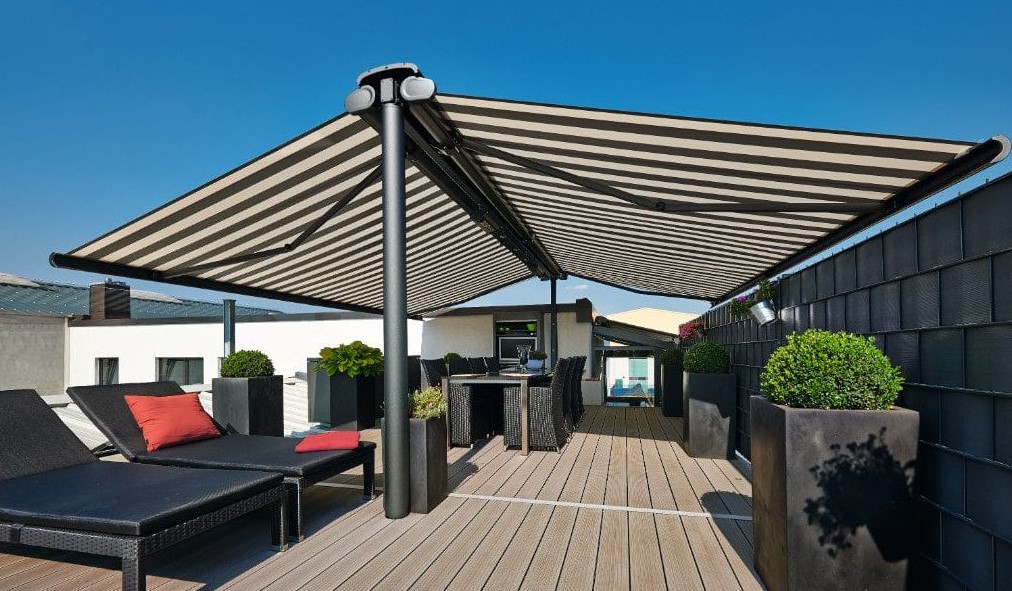
Awnings are a practical and stylish addition to any building, offering protection from the elements while enhancing the appearance and usability of outdoor spaces. Found in both residential and commercial settings, awnings come in a variety of materials, designs, and configurations, serving purposes that range from sun protection to energy efficiency and branding.
What Is an Awning?
An awning is a secondary covering attached to the exterior wall of a building, typically above a window, door, or patio. It consists of a frame structure—usually made of aluminum, steel, or wood—covered with fabric or metal to provide shade and shelter. Awnings can be stationary or retractable, with manual or motorized operation.
Benefits of Awnings
-
Protection from Sun and Rain
Awnings help block direct sunlight, reducing heat and glare. This makes patios and decks more comfortable and protects interior furnishings from sun damage. Waterproof materials also shield entryways and outdoor furniture from rain. -
Energy Efficiency
By shading windows and reducing solar heat gain, awnings can lower indoor temperatures, leading to reduced reliance on air conditioning and lower energy bills, especially in warmer climates. -
Enhanced Aesthetics
Available in a wide array of colors, patterns, and shapes, awnings can complement the architectural style of a home or business. Custom printing options also allow for branding on commercial properties. -
Expanded Living and Business Space
Awnings turn outdoor areas into usable spaces—perfect for entertaining, dining, or relaxing. Businesses such as cafes and restaurants often use awnings to create pleasant outdoor seating. -
Weather Durability and UV Protection
Modern awning fabrics are made from materials like acrylic, polyester, or vinyl-laminated fabric that resist fading, mildew, and UV damage, providing long-lasting performance.
Types of Awnings
-
Retractable Awnings: Can be extended or retracted as needed, offering flexibility. Ideal for patios, decks, and windows.
-
Stationary Awnings: Fixed in place, often used over windows and doors. Durable and dependable for long-term coverage.
-
Freestanding Awnings: Not attached to a building, suitable for gardens or poolside setups.
-
Motorized Awnings: Include remote controls, timers, or sensors for wind and sunlight.
-
Portable Awnings: Lightweight and easy to install or move, perfect for temporary shade.
Maintenance Tips
-
Clean fabric awnings with mild soap and water regularly.
-
Remove debris and check frames for rust or damage.
-
Retract awnings during storms or high winds to prevent damage.
-
Apply fabric protectants to extend the life of the material.
Final Thoughts
Awnings concord are more than just decorative features—they’re a smart investment for comfort, energy savings, and increased usability of outdoor areas. Whether you’re upgrading your backyard or enhancing curb appeal, the right awning can make a significant difference in both function and aesthetics.